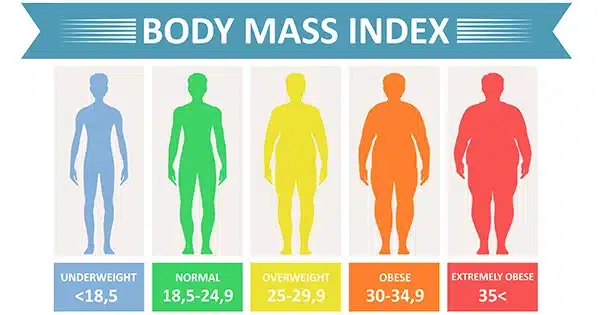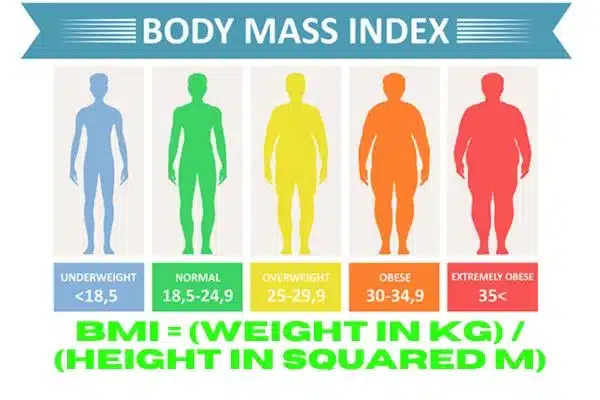Understanding BMI: Your Body’s Health Indicator
When it comes to assessing our health, BMI, or Body Mass Index, is a term that often comes into play. Understanding your BMI can provide valuable insights into your overall health and help you make informed decisions about your lifestyle. In this article, we’ll delve deep into the world of BMI, exploring what it is, how it’s calculated, and why it matters. Let’s begin our journey to a healthier you!
What BMI Stands for?
BMI stands for Body Mass Index. It’s a numerical value that represents the relationship between your weight and height. Essentially, BMI is a quick and easy way to estimate whether you have a healthy body weight for your height. To calculate your BMI, you can use the following formula:
BMI = (Weight in kilograms) / (Height in meters squared)
For example, if you weigh 70 kilograms and are 1.75 meters tall, your BMI would be calculated as follows:
BMI = 70 / (1.75^2) = 22.86
This number, 22.86 in this case, indicates your BMI. But what does it mean? Let’s explore the BMI categories to find out.
Understanding the Categories:
BMI values fall into different categories, each associated with a range of health implications:
-
Underweight (BMI < 18.5):
- If your BMI falls below 18.5, it suggests that you may be underweight. Being underweight can be a sign of malnutrition or other health issues.
-
Normal Weight (BMI 18.5 – 24.9):
- A BMI within this range indicates that you have a healthy body weight for your height. Congratulations!
-
Overweight (BMI 25 – 29.9):
- Falling into this category suggests that you might be carrying excess weight, which can increase the risk of various health problems, such as heart disease and diabetes.
-
Obesity (BMI ≥ 30):
- If your BMI is 30 or higher, it’s classified as obesity. Obesity is associated with a higher risk of serious health conditions, including hypertension and sleep apnea.
It’s important to note that while BMI is a useful screening tool, it doesn’t take into account factors like muscle mass, bone density, and distribution of fat, which can vary among individuals.

BMI Calculator: Calculate your BMI, input your age, weight in Kg, and Height in Meter.
The Limitations of BMI:
BMI is a valuable tool, but it does have its limitations. One of the main criticisms is that it doesn’t differentiate between lean body mass and fat mass. For example, a bodybuilder with a high muscle mass may have a high BMI, which would classify them as overweight or obese, even though their body fat percentage is low.
Additionally, BMI doesn’t consider where your body stores fat. The location of fat can influence health risks. For instance, carrying excess fat around the abdomen (apple-shaped) can pose a greater risk to health than fat primarily stored in the hips and thighs (pear-shaped).
Real-Life Example:
To illustrate the limitations of BMI, let’s consider two individuals: Sarah and Tom. Both have a BMI of 30, which falls into the obesity category. However, their body compositions are quite different.
Sarah is a powerlifter with a substantial amount of muscle mass. Her high BMI is primarily due to her muscle, not excess body fat. She is in excellent health and has no obesity-related health issues.
Tom, on the other hand, has a sedentary lifestyle, poor dietary habits, and a high percentage of body fat. His high BMI is a result of excess fat, which places him at a higher risk for health problems.
This example highlights that BMI alone doesn’t provide a complete picture of an individual’s health. It’s essential to consider other factors like muscle mass, fat distribution, and overall lifestyle.
Is 19 a good BMI for a woman?
Body Mass Index of 19 for a woman can be considered within the healthy range, but whether it is “good” depends on various factors and individual circumstances.
Why Does BMI Matter?
Despite its limitations, BMI remains a valuable tool in public health and medicine. Here are a few reasons why it matters:
- Screening Tool: BMI is a quick and inexpensive way for healthcare professionals to identify individuals who may be at risk of weight-related health issues.
- Population Health: BMI data is used to track trends in obesity at a population level. This information helps public health agencies develop strategies to combat the obesity epidemic.
- Research: BMI is used in numerous research studies to investigate the relationship between body weight and various health outcomes.
- Health Awareness: Knowing your BMI can encourage you to make healthier lifestyle choices. It serves as a starting point for discussions about weight management with your healthcare provider.
- Insurance and Employment: In some cases, BMI can affect insurance premiums and employment opportunities, making it important to be aware of your BMI.
Conclusion:
In conclusion, BMI is a valuable tool for assessing your body weight in relation to your height. It provides a general indication of whether you fall into categories like underweight, normal weight, overweight, or obese. However, it’s crucial to remember that BMI is just one piece of the puzzle. Individual health is influenced by various factors, including diet, physical activity, genetics, and overall lifestyle.
So, while you should certainly pay attention to your BMI, don’t let it be the sole determinant of your health. Consult with a healthcare professional who can provide a more comprehensive evaluation of your health and guide you toward making the best choices for your well-being. After all, your health is a complex story, and BMI is just one chapter in it.
